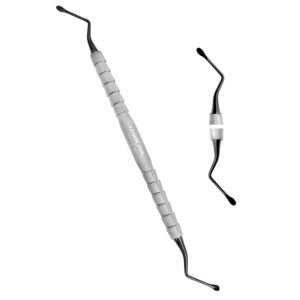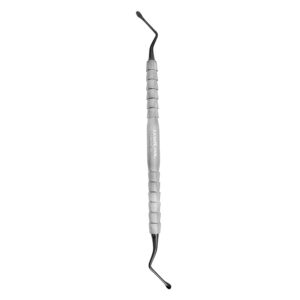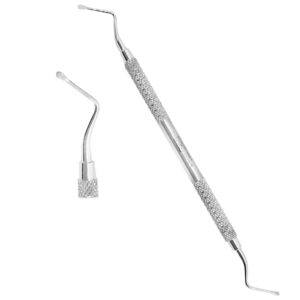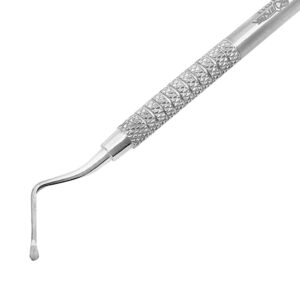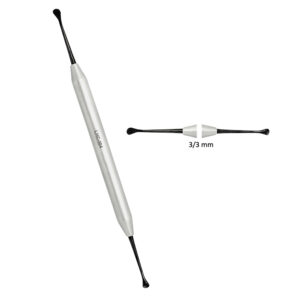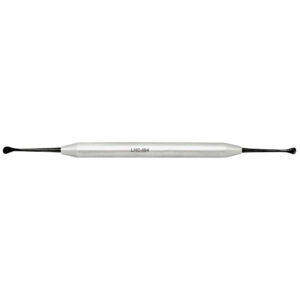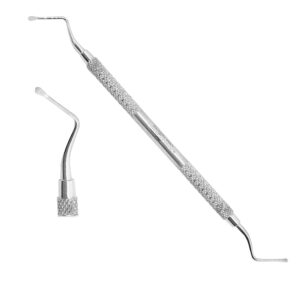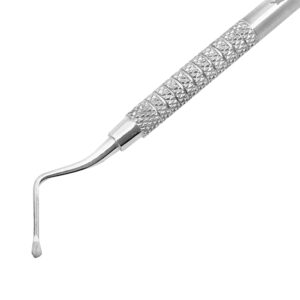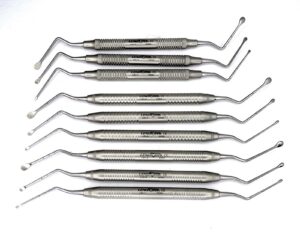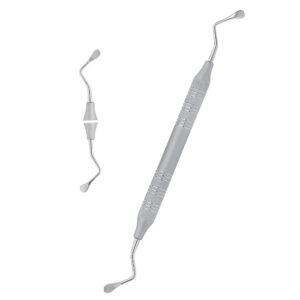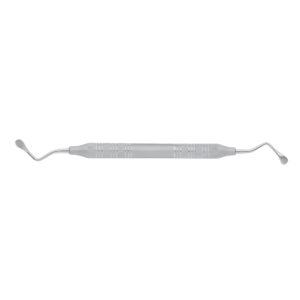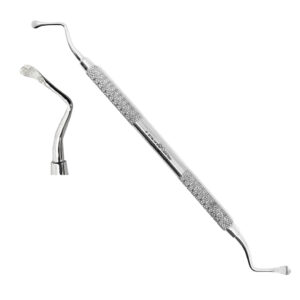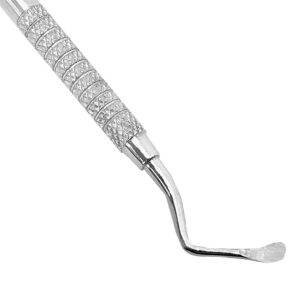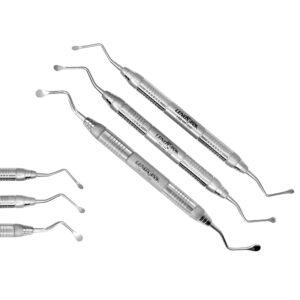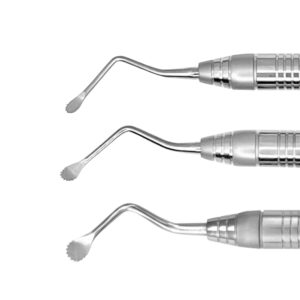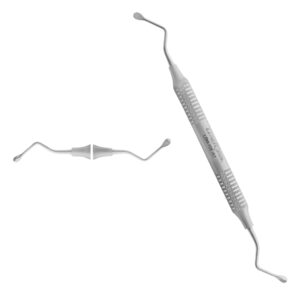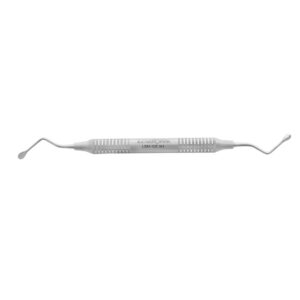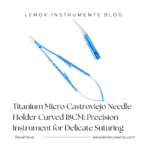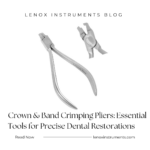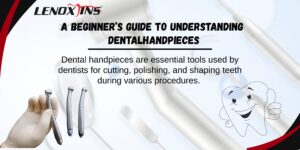Columbia Curettes: Essential Instruments for Precision in Periodontal Therapy
- LENOX INC CANADA
- September 30, 2024
- Curettes, Dental Surgical
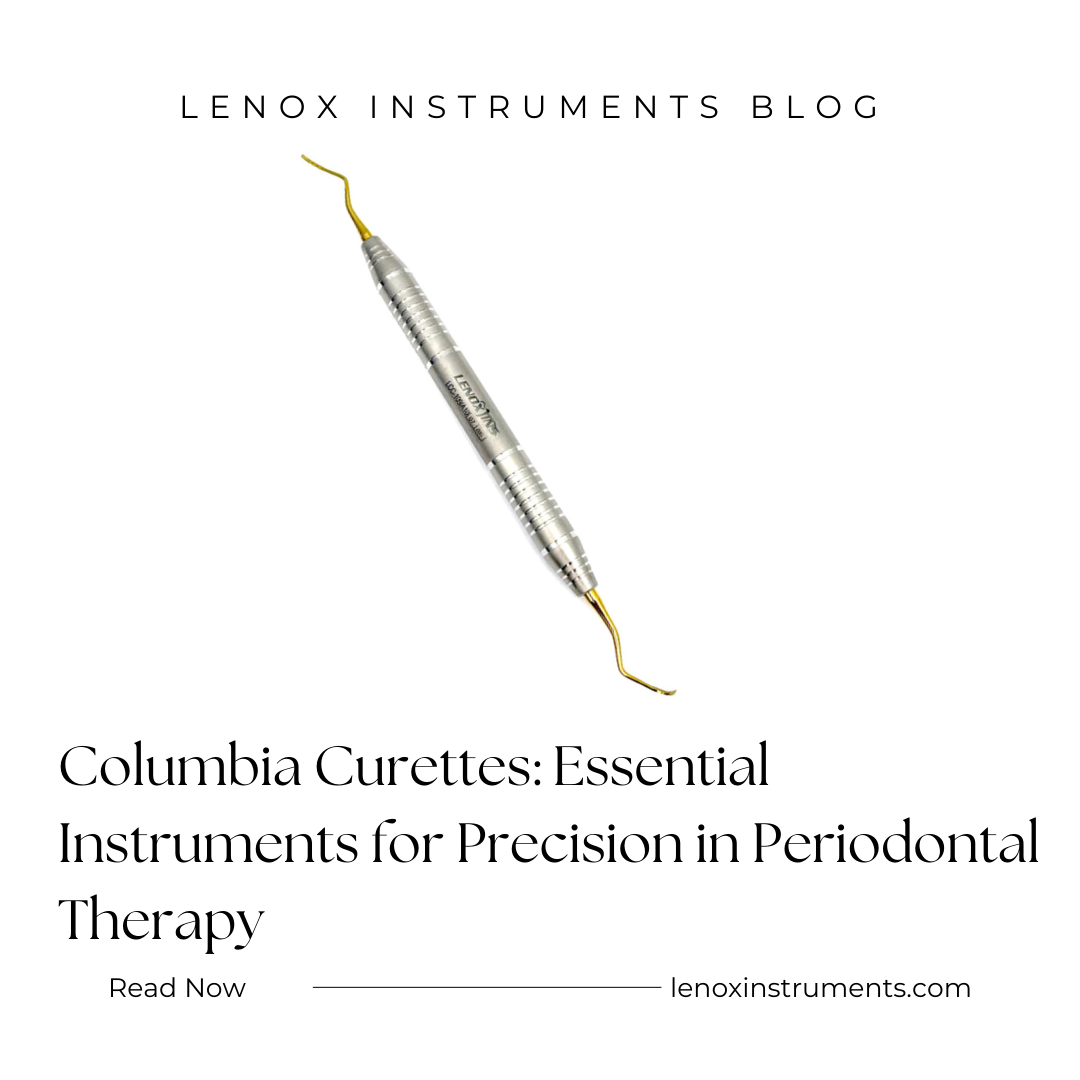
Columbia curettes are indispensable tools in the field of periodontics and dental hygiene, playing a crucial role in the effective treatment of periodontal diseases. These specialized instruments are designed to provide dental professionals with the precision and versatility needed for thorough subgingival scaling and root planing procedures. In this comprehensive guide, we’ll explore the features, applications, and importance of Columbia curettes in modern dental practice.
What are Columbia Curettes?
Columbia curettes are double-ended periodontal instruments featuring a unique design that sets them apart from other curettes. Each end of a Columbia curette has a working blade that is set at a specific angle to the shaft, typically 90 degrees. This design allows for effective scaling and root planing in various areas of the mouth, making Columbia curettes highly versatile tools in periodontal therapy.
Columbia Universal Curette
Key Features of Columbia Curettes
- Double-Ended Design:
Columbia curettes feature working blades on both ends of the instrument, allowing dental professionals to switch between different areas of the mouth without changing tools. - 90-Degree Blade Angle:
The blade of a Columbia curette is set at a 90-degree angle to the lower shaft, providing optimal access to subgingival areas. - Universal Application:
Unlike area-specific curettes, Columbia curettes can be used on both anterior and posterior teeth, as well as on facial, lingual, and interproximal surfaces. - Rounded Toe:
The working end of the blade features a rounded toe, which helps prevent tissue trauma during subgingival scaling. - Variety of Sizes:
Columbia curettes are available in different sizes to accommodate various pocket depths and root anatomies.
Types of Columbia Curettes
There are several types of Columbia curettes, each designed for specific applications:
- Columbia 13/14:
This is the most commonly used Columbia curette, suitable for general scaling and root planing procedures. - Columbia 2R/2L:
These curettes feature a more pronounced curve in the shank, making them ideal for accessing posterior teeth. - Columbia 4R/4L:
With a longer and more accentuated curve, these curettes are designed for reaching deep periodontal pockets in posterior areas.
Surgical Curettes
Applications of Columbia Curettes
Columbia curettes are versatile instruments used in various periodontal procedures:- Subgingival Scaling:
The primary use of Columbia curettes is to remove calculus and plaque from subgingival areas. - Root Planing:
These instruments are effective in smoothing root surfaces, removing contaminated cementum, and promoting healing of periodontal tissues. - Debridement:
Columbia curettes are used to remove necrotic tissue and debris from periodontal pockets. - Exploratory Procedures:
The sensitive tactile feedback provided by Columbia curettes makes them useful for detecting subgingival calculus and root irregularities.
Proper Use and Technique
To maximize the effectiveness of Columbia curettes and ensure patient comfort, proper technique is essential:- Grasp:
Hold the curette with a modified pen grasp for optimal control and sensitivity. - Fulcrum:
Establish a stable fulcrum on adjacent teeth to maintain control and reduce hand fatigue. - Adaptation:
Ensure the lower third of the blade is adapted to the tooth surface at a 70 to 80-degree angle. - Stroke:
Use short, controlled strokes in a coronal direction to remove calculus and smooth the root surface. - Pressure:
Apply firm but controlled pressure to effectively remove deposits without causing tissue trauma.
Maintenance and Care
Proper maintenance of Columbia curettes is crucial for their longevity and effectiveness:- Cleaning:
Thoroughly clean curettes immediately after use to prevent debris from hardening on the instrument. - Sterilization:
Follow proper sterilization protocols, typically involving ultrasonic cleaning and autoclaving. - Sharpening:
Regularly sharpen Columbia curettes to maintain their cutting efficiency. Use appropriate sharpening stones and techniques to preserve the instrument’s shape and angle. - Inspection:
Routinely inspect curettes for signs of wear, damage, or misalignment. Replace instruments that show significant wear or damage.
Advantages of Columbia Curettes
- Versatility:
Their universal design makes them suitable for use throughout the mouth, reducing the need for multiple instruments. - Efficiency:
The double-ended design allows for quick transitions between different areas, improving overall treatment efficiency. - Accessibility:
The 90-degree blade angle provides excellent access to subgingival areas, including deep pockets and furcations. - Tactile Sensitivity:
Columbia curettes offer superior tactile feedback, allowing clinicians to detect and remove calculus effectively. - Patient Comfort:
The rounded toe and proper technique minimize tissue trauma, enhancing patient comfort during procedures.
Limitations and Considerations
While Columbia curettes are highly versatile, they may not be ideal for all situations:- Deep Pockets:
In cases of very deep periodontal pockets, area-specific curettes or ultrasonic instruments may be more effective. - Complex Root Anatomy:
Teeth with complex root anatomies may require more specialized instruments for thorough cleaning. - Learning Curve:
Mastering the proper use of Columbia curettes requires practice and skill development.
Conclusion
Columbia curettes are essential instruments in periodontal therapy, offering dental professionals the versatility and precision needed for effective subgingival scaling and root planing. Their unique design, combined with proper technique and maintenance, makes them invaluable tools in the management of periodontal diseases. As dental practices continue to focus on minimally invasive and patient-centered care, the role of Columbia curettes in achieving optimal periodontal health remains crucial. By understanding the features, applications, and proper use of these instruments, dental professionals can enhance their clinical outcomes and provide superior care to their patients.

